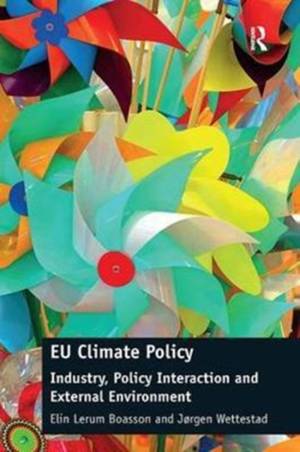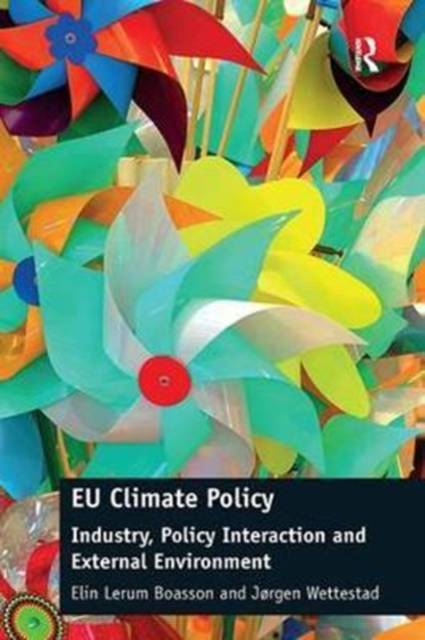
- Afhalen na 1 uur in een winkel met voorraad
- Gratis thuislevering in België vanaf € 30
- Ruim aanbod met 7 miljoen producten
- Afhalen na 1 uur in een winkel met voorraad
- Gratis thuislevering in België vanaf € 30
- Ruim aanbod met 7 miljoen producten
EU Climate Policy
Industry, Policy Interaction and External Environment
Elin Lerum Boasson, Jørgen Wettestad
Paperback | Engels
€ 64,95
+ 129 punten
Uitvoering
Omschrijving
Climate policy is today a significant area of EU governance, providing important framework conditions for many industries. But how has EU climate policy developed? This book offers structured, comparative case studies of the development of four central climate policies: emissions trading systems, renewables, carbon capture and storage, and energy policy for buildings, examining the intriguing similarities and differences in how these have taken shape. Combining sociological New Institutionalism and political science theories in a novel and engaging way, Elin Lerum Boasson and JÃ, rgen Wettestad explore and explain the history of EU climate policy. What emerges are fascinating stories - of skilled entrepreneurs who have managed to create and exploit political windows of opportunity, and of more long-term path-dependent developments. Drawing on more than 60 interviewees, the authors present accounts never told before, providing a valuable and timely contribution to our knowledge of environmental management and EU integration. This book is a must-read for all those seeking to understand the driving forces in EU climate policy and recognize its prospects for the future.
Specificaties
Betrokkenen
- Auteur(s):
- Uitgeverij:
Inhoud
- Aantal bladzijden:
- 236
- Taal:
- Engels
Eigenschappen
- Productcode (EAN):
- 9781138051157
- Verschijningsdatum:
- 16/06/2017
- Uitvoering:
- Paperback
- Formaat:
- Trade paperback (VS)
- Afmetingen:
- 156 mm x 233 mm
- Gewicht:
- 452 g

Alleen bij Standaard Boekhandel
+ 129 punten op je klantenkaart van Standaard Boekhandel
Beoordelingen
We publiceren alleen reviews die voldoen aan de voorwaarden voor reviews. Bekijk onze voorwaarden voor reviews.










